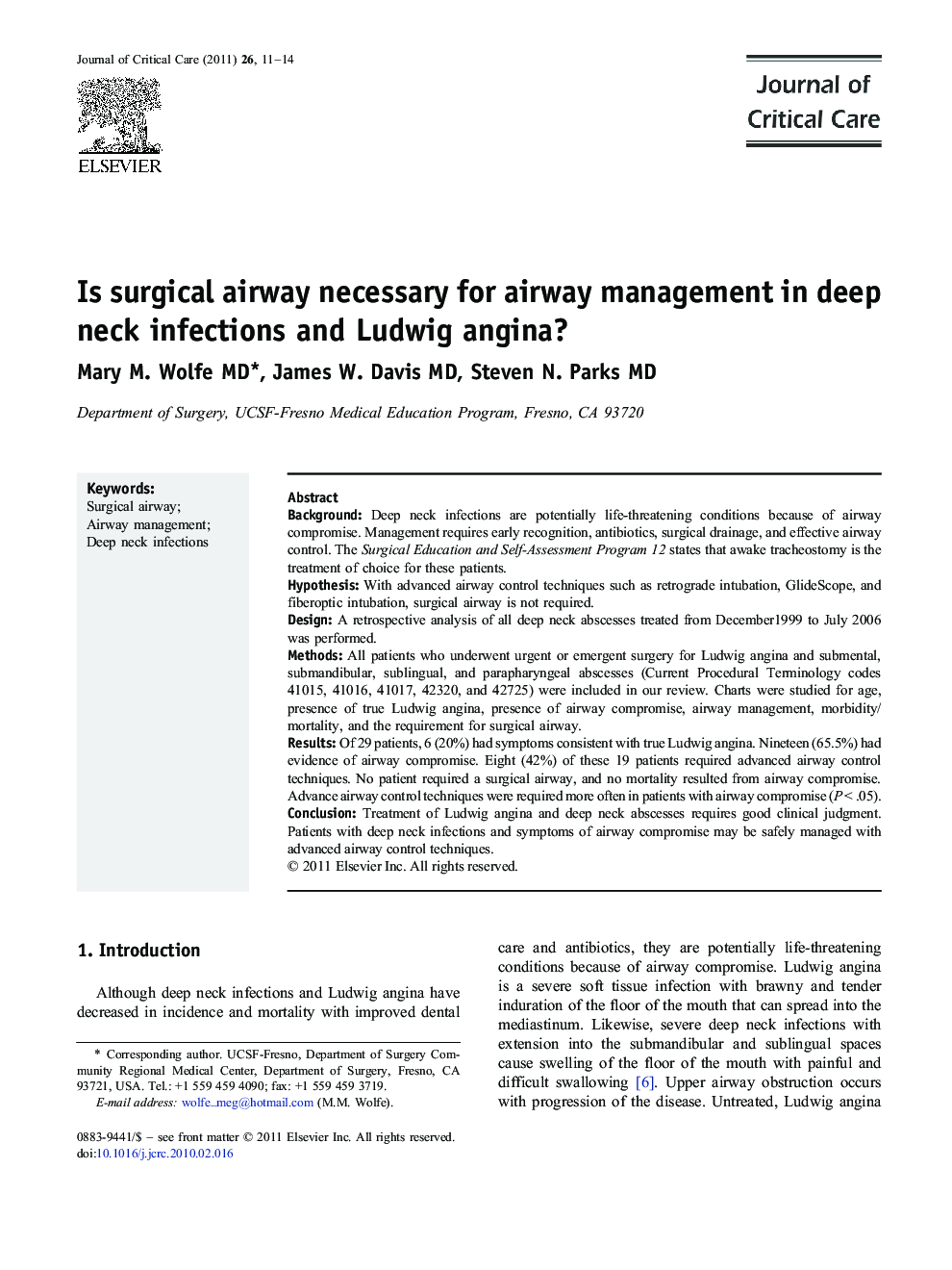| Article ID | Journal | Published Year | Pages | File Type |
|---|---|---|---|---|
| 2765391 | Journal of Critical Care | 2011 | 4 Pages |
BackgroundDeep neck infections are potentially life-threatening conditions because of airway compromise. Management requires early recognition, antibiotics, surgical drainage, and effective airway control. The Surgical Education and Self-Assessment Program 12 states that awake tracheostomy is the treatment of choice for these patients.HypothesisWith advanced airway control techniques such as retrograde intubation, GlideScope, and fiberoptic intubation, surgical airway is not required.DesignA retrospective analysis of all deep neck abscesses treated from December1999 to July 2006 was performed.MethodsAll patients who underwent urgent or emergent surgery for Ludwig angina and submental, submandibular, sublingual, and parapharyngeal abscesses (Current Procedural Terminology codes 41015, 41016, 41017, 42320, and 42725) were included in our review. Charts were studied for age, presence of true Ludwig angina, presence of airway compromise, airway management, morbidity/mortality, and the requirement for surgical airway.ResultsOf 29 patients, 6 (20%) had symptoms consistent with true Ludwig angina. Nineteen (65.5%) had evidence of airway compromise. Eight (42%) of these 19 patients required advanced airway control techniques. No patient required a surgical airway, and no mortality resulted from airway compromise. Advance airway control techniques were required more often in patients with airway compromise (P < .05).ConclusionTreatment of Ludwig angina and deep neck abscesses requires good clinical judgment. Patients with deep neck infections and symptoms of airway compromise may be safely managed with advanced airway control techniques.
